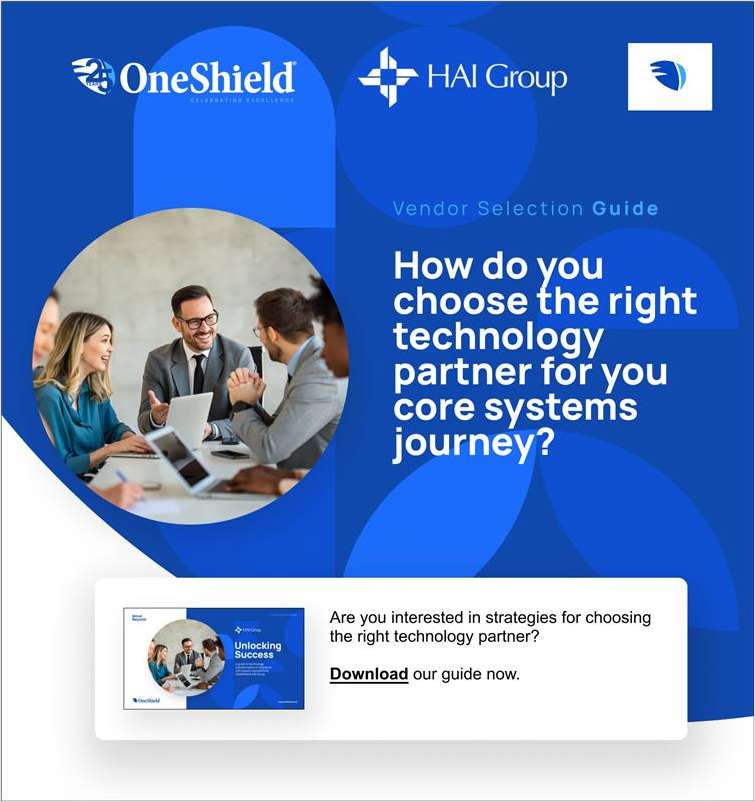INSURANCE agencies face a host of important questions right nowin the face of a softening market. In any market, questions of faircompensation for producers and CSRs are near the top of the list.We recently had an extended conversation about compensation andother topics while meeting with one of our agency partners. We cameup with several sets of questions that all agencies should askthemselves:
|?Should we pay our producers on all accounts?
?Should we establish a "bare minimum level" of premium foraccounts, below which we don't pay commissions?
?How do we get our producers to grow their books of business?
?Should we compensate CSRs for sales?
?What should be the split between agencies and producers?
?Where should we focus our efforts in 2005?
Agencies should be able to answer these questions, too. Use yourresponses to form a production-staff compensation plan, followingthe guidelines below:
|1. Every agency is different, but everyone needs to set a "bareminimum level" for accounts on which you will pay commissions toproducers. Calculate the dollar value of your agency's time andoverhead needed to break even on a typical account, as well as theminimum level of commission the producer needs to break even. Add15% to the break-even number, and you have your "bare minimumlevel." This number can be different for different producers, andit can vary between personal lines and commercial lines.
|2. Anything below the bare minimum level is a house account. Ifyou want to emphasize the importance of reaching the bare minimumlevel, purchase a box of thank-you cards. For every account yourproducers write below the bare minimum level, send them a nice cardin the mail. You won't have to send too many cards before theproducers understand.
|3. CSRs are humans too! Agencies should reward their CSRs fortheir role in sales. By providing professional service on anaccount, a CSR allows the producers (or agency owners) to get outand sell. The larger the book a CSR services, the better his or herincentives should be.
|4. You decide the split. Agencies must decide for themselveswhat split of commission with producers works for them. Sharing thewealth can include more than just the cash commission. Otherconsiderations include cars or car allowances, country clubmemberships, expense accounts and the like. One thing is for sure:Successful agencies reward performers and make the lazy suffer.
|5. Focus your efforts where they bring results. In other words,where does your revenue come from?
|a. For each producer, run a production list by size of account.Draw a line on this list below the group of accounts that represent80% of a producer's revenue (this is normally about the top 20% ofclients). Anything below the line can become a throw-away or houseaccount. These "below the line" accounts cost the agency and theproducer time and money. Have producers shed any account below yourbare minimum level.
|b. Have producers focus on getting referrals from the top-20%accounts. We want our top 20% referring us to other "top-20"accounts. By focusing on top-flight referrals, your producers willquickly be compensated for any decrease in income after sheddingthe bottom 80%.
|c. Identify your 2005 prospects now and prioritize themaccording to how well they match up with your carriers' appetitesand fit your "top 20" criteria. Ask your current top 20 if they cangive you referrals to any of your prospects.
|For the last two years of the hard market we've seenbelow-average people making absurd amounts of money, holdingclients hostage and taking high commissions to the bank. It was afun ride, but now it's over.
|Even top performers are realizing they did not invest enough intraining during the good times, and now there is an all-out panic.When your agency renews enough accounts at today's decreasingrates, your revenues may drop by 15% to 20%. When that happens, youhave additional questions to answer:
|1. Have you made plans to increase sales skills, now that your"top 20%" know prices are coming down and have hit the street tolook for a better deal?
|2. Are you following a marketing and sales process that willenable you to increase your closing ratio in a softenedmarketplace?
|If you aren't doing either of the above, you may have one lastquestion to answer: Are you ready for your carriers to tell you thenew rules about how much you need to produce to keep your contract,and to reduce staff and cut overhead and reduce your personalincome in order to offset the upcoming 20% decrease in your revenuebecause you fell asleep at the switch?
|We all have questions to answer; which ones you answer is up toyou. Good selling!
|Tom Barrett is president of the Midwest and Southeast regions ofSIAA, Inc. SIAA is a partnering of 1,500 agencies writing $3.25billion annually in property-casualty premium, making it thenation's 6th largest insurance entity. Tom also serves on theNational Faculty for Dynamics of Selling and Marketing & SalesRuble Seminars for The National Alliance. If you would likecomments on your planning, e-mail Tom at [email protected]. Forinformation on National Alliance programs, go towww.TheNationalAlliance.com.
Want to continue reading?
Become a Free PropertyCasualty360 Digital Reader
Your access to unlimited PropertyCasualty360 content isn’t changing.
Once you are an ALM digital member, you’ll receive:
- All PropertyCasualty360.com news coverage, best practices, and in-depth analysis.
- Educational webcasts, resources from industry leaders, and informative newsletters.
- Other award-winning websites including BenefitsPRO.com and ThinkAdvisor.com.
Already have an account? Sign In
© 2024 ALM Global, LLC, All Rights Reserved. Request academic re-use from www.copyright.com. All other uses, submit a request to [email protected]. For more information visit Asset & Logo Licensing.








